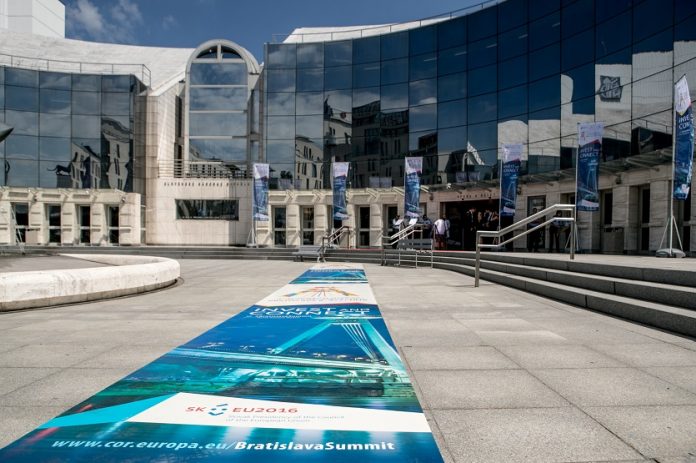Markku Markkula, President of the European Committee of the Regions (CoR) tells AG why Europe needs to connect and deliver better investment in order to benefit cities and regions…
The outcome of the UK referendum was another sure sign that the EU must change the way it does business. It needs to better demonstrate that it can and does bring tangible benefits to the lives of every citizen. For the European Committee of the Regions – the EU’s assembly of elected Presidents, Mayors and Councillors – this first and foremost means driving sustainable growth locally. But regional disparities continue to rise and investment has fallen by 15% since the outset of the economic crisis. This investment gap must be plugged not only for the sake of creating new jobs, but to rebuild the loss of trust in the European Union.
Improving investment to reconnect Europe was the central theme of the European Summit of Regions and Cities on 8-9 July in Bratislava. During the Summit the Committee’s members adopted its ‘Bratislava Declaration’ which set out a vision for the EU’s future investment. It demands that investment, based on both results and solidarity, is delivered locally. Every cent of EU money must be used to benefit people and businesses in their daily lives.
This vision is based on the need to invest locally and regionally. It’s worth remembering that local and regional administrations account for around 60% of public investment in Europe, money that pays for vital services such as education, transport, housing and health. A lack of investment means reduced public services and a fall in local competitiveness. Yet it also is clear that there is huge untapped potential in our cities and regions which is vital to making our regional economies wealthier, healthier, greener and fairer.
To do this the EU must firstly retain, reinforce and improve its cohesion policy – regional funds amounting to €350bn between 2014 and 2020, which tries to tackle regional economic differences. After 2020 there will be a debate on potentially reforming this cornerstone of EU policy and it needs to change with the times which is why we need to simplify regulation and cut red-tape to improve delivery. Public funds are never enough which is why we fully support the European Commission’s €315bn Investment Plan for Europe launched last year which uses EU funds to attract private investment to deliver projects.
These two EU financial tools can make or break many regional economies so they need to be complementary and better aligned. Fundamentally the success of EU policy and funding depends on stepping up efforts to increase dialogue and cooperation between local, regional, national and EU administrations. The EU is making headway and our Committee is partnering up with the European Investment Bank and the European Commission to make these financial resources work.
We also need to have a new vision on where we target investment if we are to make the structural changes needed to kick start our economy. The economist and social theorist, Jeremy Rifkin, told the Summit that we are at the start of a ‘Third Industrial Revolution’ and it holds true that the digitalisation of communication, energy and transport is opening up new avenues and improving economic activity. Investment is not just about transport and other infrastructure: it is also about investing in education, training and skills; in research and innovation; in smart energy networks; and in start-ups and scaling-up of innovative and dynamic enterprises.
Europe needs to swiftly change to maintain its competitive edge on the global market. This doesn’t mean tearing up EU treaties but building on what we have. We need to direct all EU resources to connect Europe’s people, places and resources and work in partnership. We need to create synergies in our policies and budgets at the EU, national and regional level to put an end to Europe being viewed as a top-down project. We need to recognise the added value cities and regional authorities bring to the European construction which means giving Presidents, Mayors and Councillors a greater say in EU laws and activities that directly impact their communities. This also means significantly changing the way the EU communicates – communicating Europe must start local and listen to citizens. If the EU is to become more dynamic and more citizen-focused, it needs better investment and better laws designed in partnership with the regions and its citizens.
Markku Markkula
President
European Committee of the Régions (CoR)











